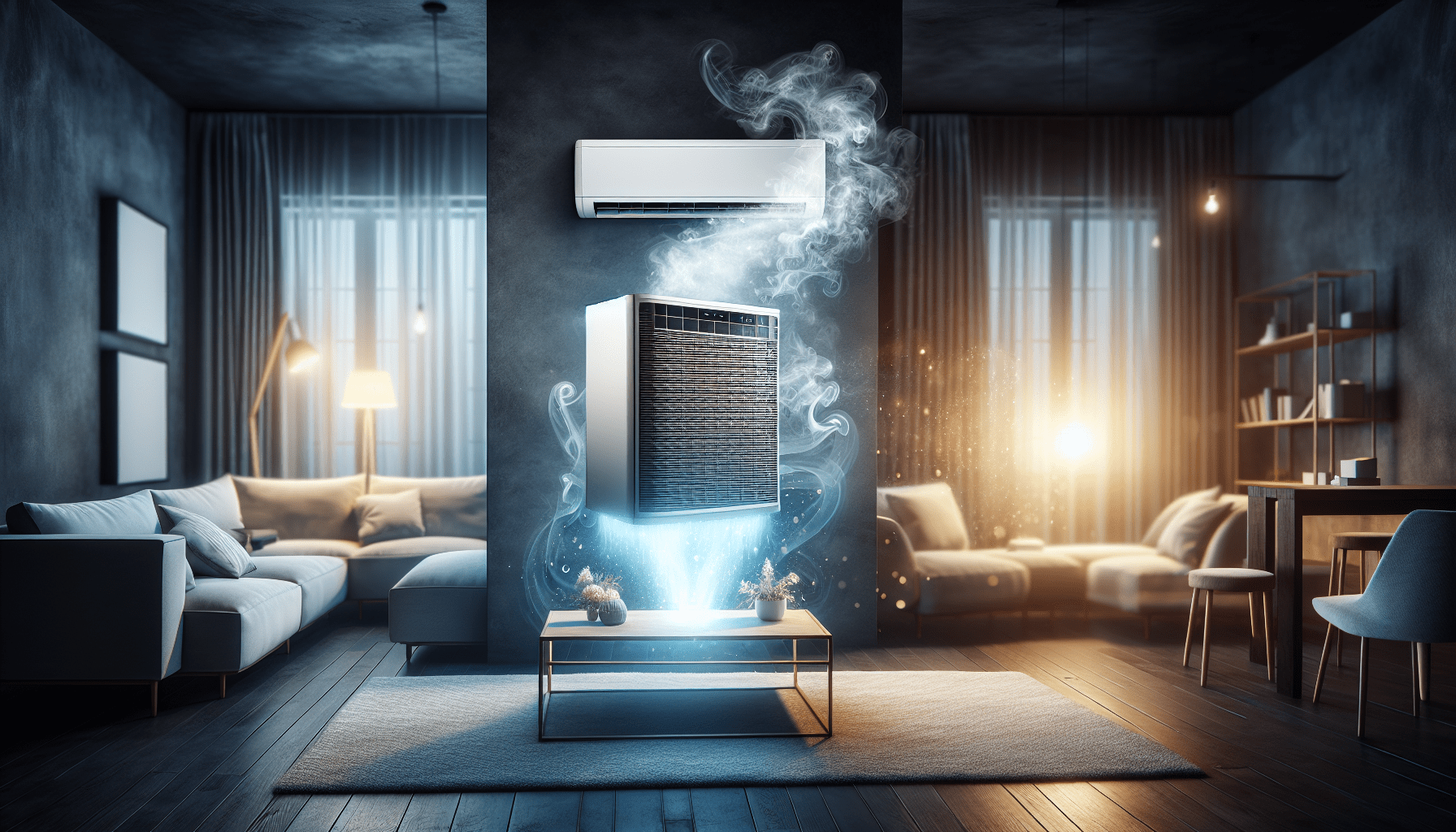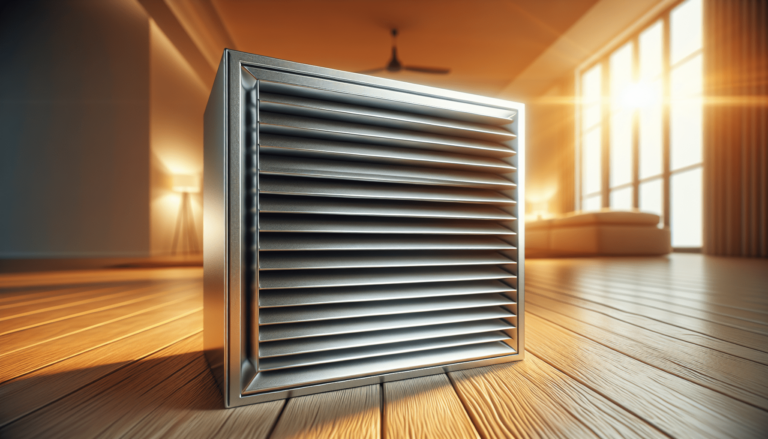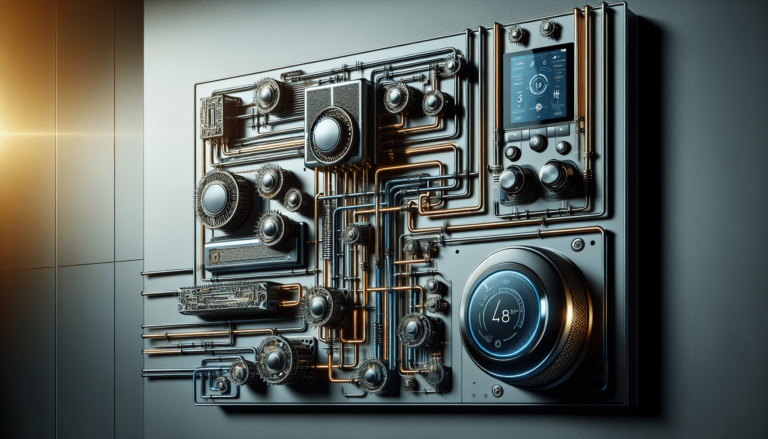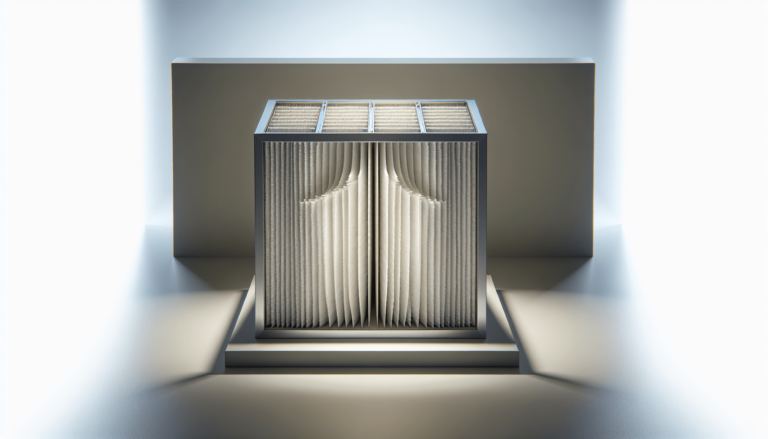

HVAC Services
Get Professional Repairs From The Area's Trusted HVAC Technicians. Ask About Our Services! We Offer Professional Heating & Cooling System Repairs And Guarantee Long-Lasting Results.
Got Question? Call us: (850) 678-2665Financing
Tackling Humidity Issues With Your HVAC System
Discover how to bid adieu to stickiness and pesky winter chills! Learn how your HVAC system can solve indoor humidity woes for year-round comfort and health.

Have you ever found yourself uncomfortably sticky in your own home during a hot summer’s day, or felt that chill dampness in a supposedly cozy winter environment? It might not just be a problem with the temperature setting on your thermostat. This discomfort is often due to humidity levels ignoring your desired indoor climate. Properly understanding and handling humidity issues is crucial for ensuring comfort at home, and your HVAC system might need a few tweaks to handle the job effectively.

Understanding Humidity and Its Impact
Humidity, simply put, is the amount of water vapor present in the air. It’s an often-overlooked factor when we talk about indoor comfort and air quality. Yet, it plays a substantial role in determining how we perceive temperature. High humidity can make a hot day feel even hotter, while low humidity can make a cool day feel colder than it actually is. But why does this happen?
The Science Behind Humidity and Comfort
When it’s humid outside, there is a high amount of moisture in the air. Your body cools down by sweating, but sweat doesn’t evaporate as efficiently when it’s humid, because the air is already saturated with moisture. This is why you feel sticky and warmer on a humid day. In winter, the dry air can cause your skin to feel tight and itchy, as there isn’t enough moisture in the air to retain skin’s hydration.
Measuring Humidity Levels
Before diving into solutions, it’s crucial to understand what humidity levels are ideal. Typically, indoor humidity should range from 30% to 50%. A hygrometer can be a useful tool here, allowing you to measure current humidity levels in your home accurately. If your levels are consistently outside of this range, it may be time to make some adjustments to your HVAC system or consider supplemental solutions.
How Your HVAC System Interacts with Humidity
Most people think of their HVAC (Heating, Ventilation, and Air Conditioning) system as a temperature controller. However, it also plays a vital role in managing your home’s humidity levels. Every function of your HVAC system—from heating and cooling to ventilation—can influence moisture levels in the home.
The Air Conditioning Cycle and Dehumidification
Your air conditioning system doesn’t just cool the air; it dehumidifies it too. As air passes over the cold evaporator coil, moisture condenses out of the air and drains away, reducing humidity levels. However, if your AC unit is oversized, it may cool the air too quickly without removing enough moisture. This can leave the air feeling cold and damp—a classic high humidity condition.
Heating and Humidity
Heating generally reduces indoor humidity levels. When your furnace heats the air, it expands, and its relative humidity drops. This is why boosting the temperature can make the air feel even drier in winter months. If your HVAC system lacks proper humidification, this could lead to excessively dry indoor air, resulting in health issues like respiratory distress, dry skin, or even increased static electricity.
Common Humidity Problems and Their Causes
When dealing with humidity, problems arise both when there’s too much and too little of it. Understanding common problems related to humidity in your home can guide you towards finding the right solutions.
Excessive Humidity
Excessive humidity might be due to an inadequately sized AC system, poor ventilation, or even an improperly working thermostat. High indoor humidity can lead to more than just discomfort. Think about mold growth, damage to home furnishings, and even worsened allergies or respiratory issues.
Insufficient Humidity
On the flip side, insufficient humidity is usually a winter problem, often arising from extended heating without any added moisture to the air. This can lead to dried-out mucous membranes, increasing susceptibility to colds and respiratory problems. It can also cause wooden furniture or flooring to crack or warp due to the lack of moisture.
Solutions for Humidity Control
There are various strategies you can deploy to address humidity issues, with solutions ranging from adjustments to your existing HVAC settings to incorporating new technology.
Calibrating Your Thermostat
Your first step should be ensuring that your thermostat settings are ideal for dehumidification. If your system’s thermostat is set to “auto,” consider setting it to “on” instead, as this will keep the fan running to circulate air and may help with reducing humidity. Likewise, ensure that your thermostat is placed in an area that accurately represents the room’s temperature and humidity levels.
Regular HVAC Maintenance
It may sound simple, but regular maintenance of your HVAC system helps it perform at its best. Dust and debris blockages interfere with airflow and moisture removal, so timely service can prevent your system from underperforming. Ideally, you should have a professional inspect and service your HVAC system annually—consider Tempacure Heating and Air Conditioning in Niceville, FL, as a resource for quality HVAC service.
Incorporating Humidifiers and Dehumidifiers
Sometimes, the HVAC’s built-in systems aren’t enough. Portable humidifiers can introduce moisture back into arid winter air, while dehumidifiers can be used alongside the AC to manage summer humidity. If your problems are consistent year-round, you may want to look into a whole-house solution like a comprehensive humidifier/dehumidifier system tied directly into your HVAC setup.
Ventilation Improvements
Effective ventilation aids in maintaining optimal humidity levels and air quality. By installing exhaust fans in key areas like bathrooms and kitchens, you can help eliminate excess moisture. These fans remove moist air from showering, cooking, and dishwashing before it can spread to other parts of the home.

When to Call the Professionals
While many humidity-related problems can be managed with simple DIY solutions, some situations call for expert intervention. If you’ve tried various steps and your home still suffers from persistent humidity issues, or if your equipment appears to be malfunctioning, it might be time to contact a professional HVAC specialist.
What to Expect from a Professional Assessment
A professional will assess your current HVAC setup’s ability to cope with humidity. Their evaluation might include checking for leaks or poor sealing in your ductwork, inspecting the integrity of your insulation, and verifying that your equipment is properly sized for your home. They might recommend system upgrades or additional equipment to better tackle your specific humidity issues.
Finding the Right Help
Seeking expert advice and service can make a world of difference. Look for a reputable company like Tempacure Heating and Air Conditioning, which offers a complete range of HVAC services. They’re well-equipped to diagnose problems and offer solutions tailored to your specific needs and environment.
Conclusion
Addressing humidity issues is not simply about comfort; it’s also about safeguarding the structural integrity of your home and the health of its occupants. By enhancing awareness and taking proactive measures, you can optimize your HVAC system for both temperature and moisture control. Remember the importance of regular maintenance, consider smart solutions like humidifiers or dehumidifiers, and don’t hesitate to call professionals when needed. With the right attention and care, your home can become a more consistent haven of comfort throughout the year.







